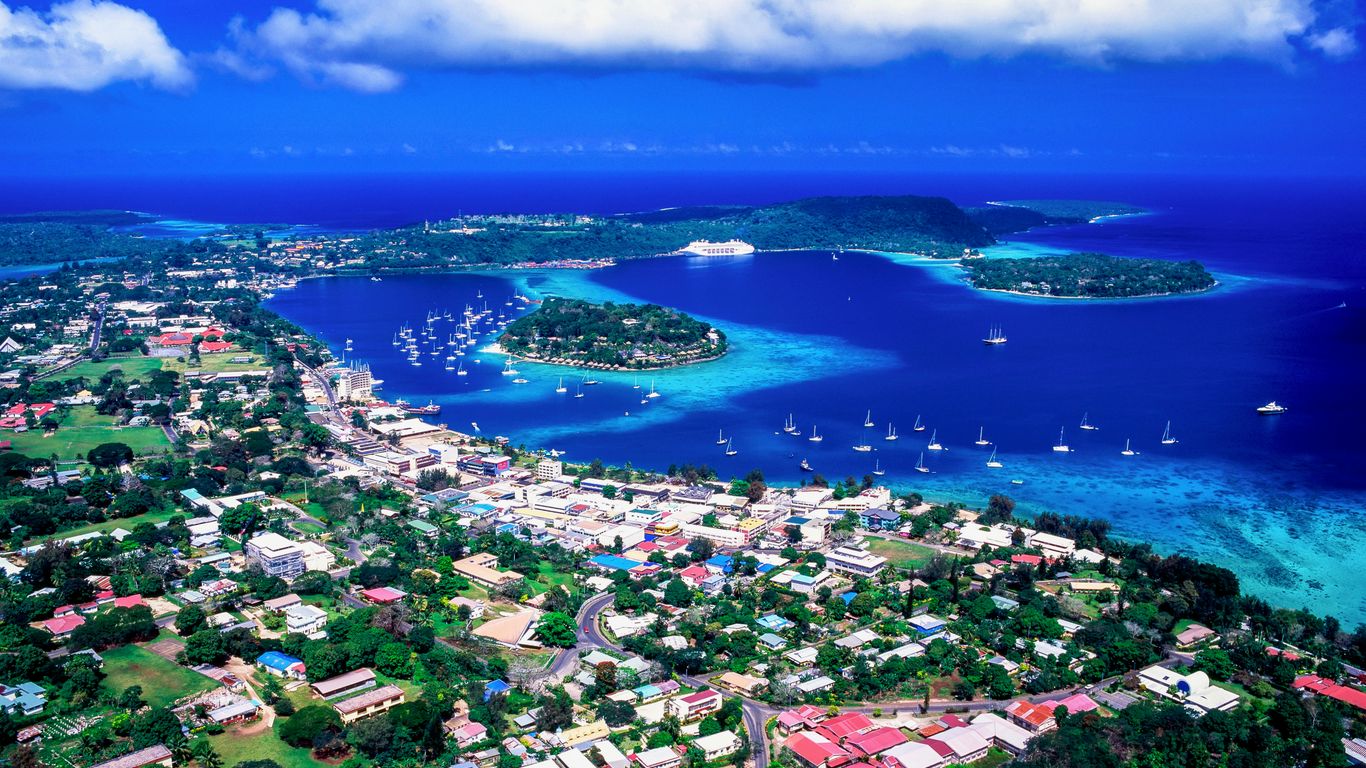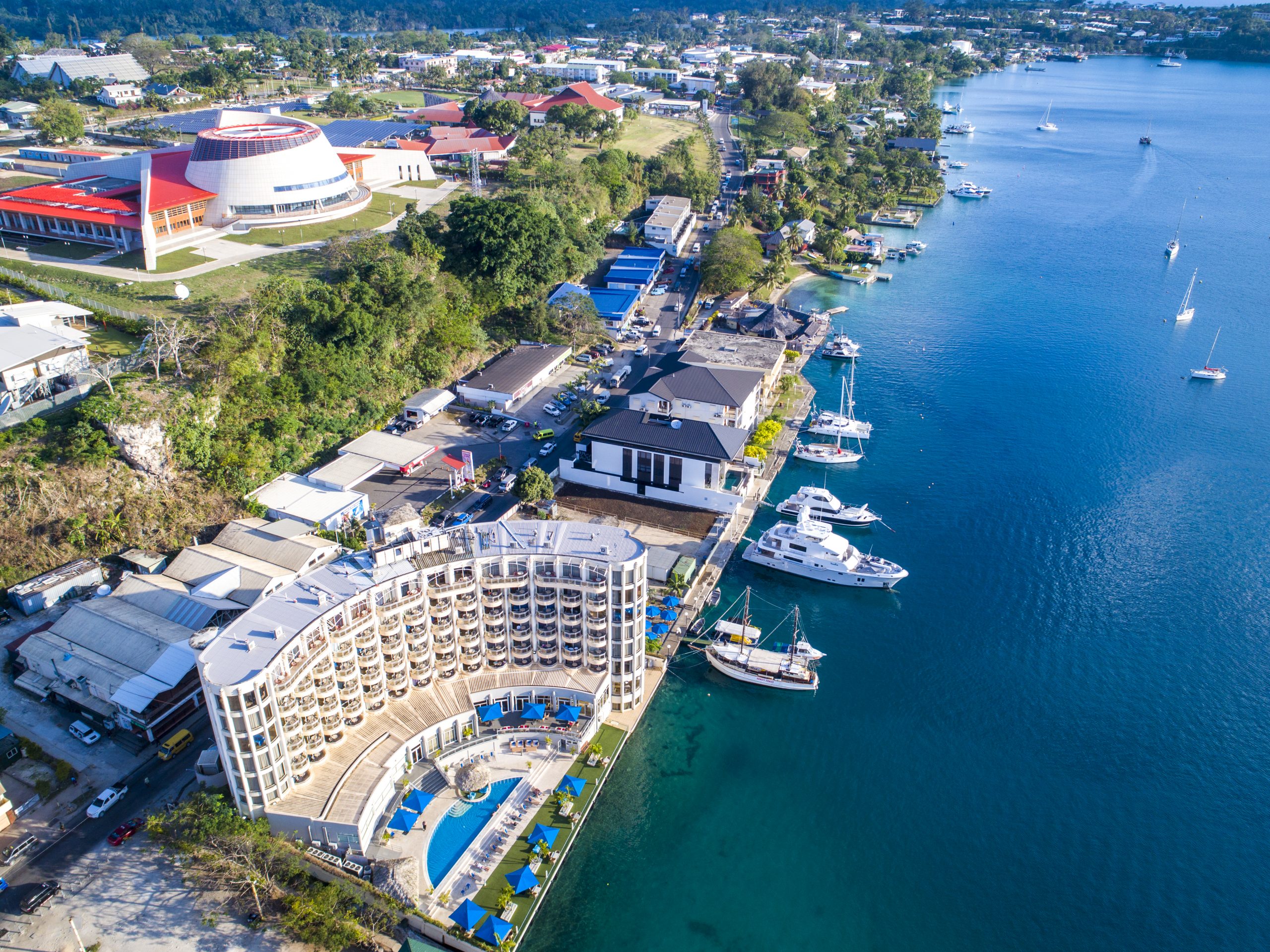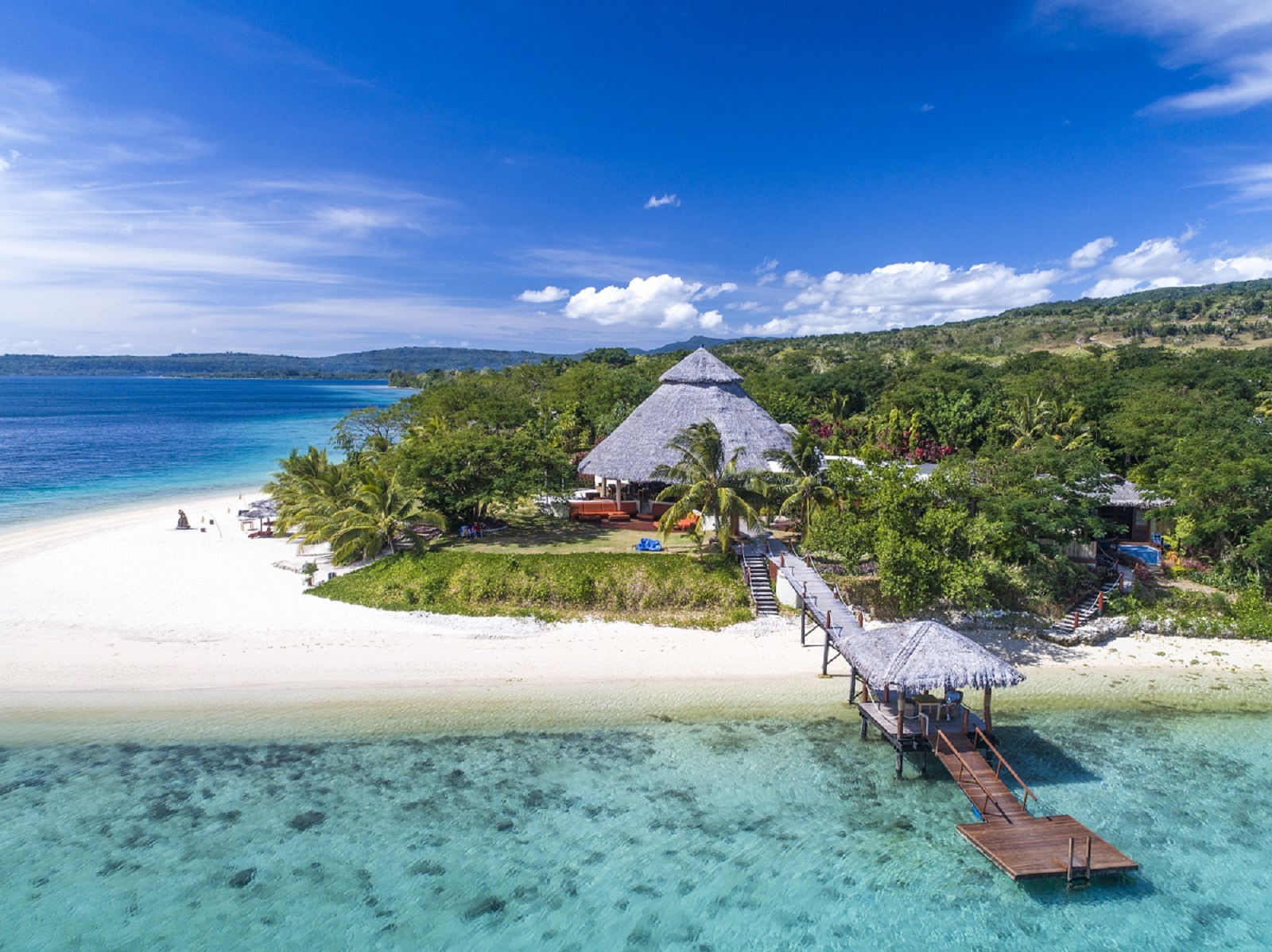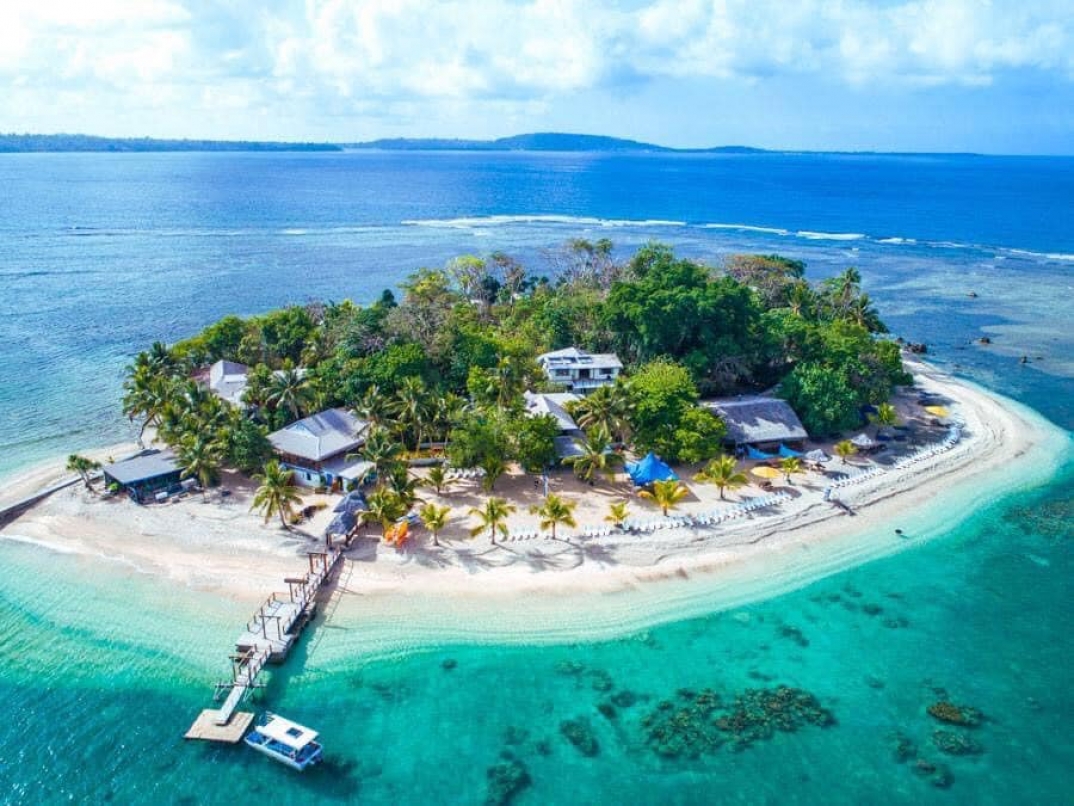Incorporate A Company In Vanuatu In 2025

Located between Fiji and Australia, Vanuatu is a tropical paradise with a population of approximately 300,000. Its capital, Port Vila, serves as the country’s political, economic, and cultural hub. Vanuatu gained independence from joint British and French colonial rule in 1980 and is now a member of the Commonwealth of Nations.
The country’s economy is primarily driven by agriculture, tourism, and offshore financial services. Known for its laid-back lifestyle and unspoiled nature, the region is a sought-after destination for both tourists and expatriates. Its strategic location, political stability, and attractive tax policies make it an ideal place to live and do business.
Standard of Living in Vanuatu
Vanuatu offers a high quality of life, particularly for those seeking a slower pace and close connection with nature.
Key Features of Life in Vanuatu:
- Natural Beauty: From pristine beaches to lush rainforests, Vanuatu’s environment is its biggest draw. Outdoor activities such as snorkeling, diving, and hiking are part of everyday life.
- Community Spirit: The Ni-Vanuatu people are known for their warmth and hospitality. Expats often find it easy to integrate into the local community.
- Infrastructure: While the region is not as developed as Western nations, it offers modern amenities, including healthcare and education facilities in urban areas.
- Safety: The region is considered one of the safest countries in the South Pacific, with low crime rates and a strong sense of community.

The cost of living in Vanuatu is moderate. While imported goods can be expensive, locally produced food and services are affordable, making it possible to enjoy a comfortable lifestyle.
Personal Taxes in Vanuatu
One of the most attractive aspects of living in Vanuatu is its lack of personal taxes.
Tax-Free Income:
- Residents of the region do not pay income tax, capital gains tax, or inheritance tax. This makes it a popular destination for high-net-worth individuals and retirees seeking to maximize their income.
Social Contributions:
While there is no personal income tax, residents may be required to make small contributions to social security schemes for healthcare and retirement benefits.
Vanuatu’s tax-free regime, combined with its simple regulatory framework, is a significant advantage for individuals considering relocation.
Corporate Taxes in Vanuatu
Tax-Friendly Business Environment:
- The region has no corporate tax for businesses operating within its jurisdiction. This has made the country an attractive hub for offshore companies and international investors.
- Companies in Vanuatu also benefit from no withholding taxes, no value-added tax (VAT) on exports, and minimal regulatory burdens.
Offshore Financial Services:
The region is a popular offshore financial center, offering a range of services such as company registration, banking, and investment funds. Its favorable tax environment and commitment to privacy attract businesses from around the world.
Local Business Taxation:
While offshore businesses enjoy tax exemptions, companies operating within Vanuatu’s domestic economy may be subject to a modest VAT of 15%.
Major Industries in Vanuatu
- Agriculture and Fishing
Agriculture is the backbone of the region’s economy, employing the majority of its population. Key crops include coconuts, kava (a traditional crop used for beverages), cocoa, and coffee. The fishing industry also plays a vital role, with tuna and other seafood being significant exports.
- Tourism
Tourism is one of the fastest-growing sectors in Vanuatu. Its pristine beaches, vibrant coral reefs, and rich cultural heritage attract visitors from across the globe. Popular attractions like the Yasur Volcano, Blue Lagoon, and cultural festivals fuel the industry’s growth. Eco-tourism and adventure tourism are also gaining traction.
- Offshore Financial Services
The region has positioned itself as a global hub for offshore financial services. With no corporate or personal income tax, it attracts businesses and investors looking for tax-efficient solutions. Services include offshore company registration, banking, and investment funds.
- Real Estate and Construction
The real estate sector is booming, driven by increasing interest from expatriates and investors. Luxury villas, resorts, and commercial properties are being developed to cater to growing demand. Construction activities also support local employment and infrastructure development.
- Renewable Energy
The region is making strides in renewable energy to reduce its dependence on imported fuels. Solar, wind, and hydroelectric projects are being implemented, creating opportunities for innovation and investment.
Inflation and Cost of Living in Vanuatu
Inflation Trends

Inflation in the region is moderate and influenced by global economic factors, as well as the cost of imported goods. While basic necessities are affordable, luxury items and imported goods can be costly due to shipping expenses.
Cost of Living
The cost of living in the region is relatively low compared to developed nations, though it varies by location:
- Housing: Accommodation ranges from affordable local housing to high-end properties for expats.
- Food: Locally grown produce and seafood are inexpensive, but imported goods can be pricey.
- Utilities and Transportation: Utilities are moderately priced, and public transportation is limited but affordable.
While the cost of living is manageable, budgeting for occasional imported goods is essential for expats accustomed to Western lifestyles.
Property Tax, Services Tax, and Sales Tax in Vanuatu
Property Tax
Vanuatu does not impose a traditional property tax. Property owners are not burdened with annual taxes, making real estate investment more appealing.
Value-Added Tax (VAT)
A VAT of 15% is levied on most goods and services. However, exports and essential items such as basic food products are exempt or zero-rated.
Other Taxes
Vanuatu has no personal or corporate income tax, inheritance tax, or capital gains tax, making it an attractive jurisdiction for investors and expatriates.
Types of Business Entities in The Vanuatu
Vanuatu offers several business structures to cater to diverse needs:
- Sole Proprietorship
A simple structure ideal for small-scale entrepreneurs. The owner is fully responsible for the business’s liabilities.
- Partnership
Partnerships allow two or more individuals to share responsibilities and profits. They can be general or limited, depending on the level of liability protection.
- Limited Liability Company (LLC)
An LLC is a popular choice for businesses seeking liability protection. It is a separate legal entity, protecting owners’ personal assets from business debts.
- International Company
This structure is ideal for offshore businesses. International companies benefit from tax exemptions and privacy protections, making Vanuatu a favored offshore destination.
- Trusts and Foundations
Trusts and foundations are commonly used for estate planning, asset protection, and philanthropic activities. They enjoy favorable legal and tax treatment.
Licenses to Start a Business in Vanuatu
Starting a business in Vanuatu requires obtaining the necessary licenses and permits:
- Business License
Every business must obtain a general business license from the Vanuatu Financial Services Commission (VFSC). The cost varies depending on the type and size of the business.
- Industry-Specific Licenses
Certain industries, such as tourism, agriculture, and financial services, require additional licenses or permits. For example:
- Tourism operators need approval from the Department of Tourism.
- Financial services companies must comply with VFSC regulations.
- Environmental Permits
Businesses involved in construction or activities impacting the environment must obtain permits from relevant authorities.
- Work Permits for Expats
Expat entrepreneurs and employees must secure work permits to operate legally in Vanuatu.
Opportunities for Expats for Business Growth in The Vanuatu
The region offers immense potential for expats looking to establish businesses or invest in its growing economy:
- Tourism-Related Ventures
Expats can explore opportunities in eco-tourism, hospitality, and adventure tourism. The government encourages investment in sustainable tourism projects.
- Agriculture and Agro-Processing
With fertile land and favorable climate, expats can invest in organic farming, export-oriented agriculture, or agro-processing businesses.
- Real Estate Development
The increasing demand for residential and commercial properties provides lucrative opportunities for real estate developers and investors.
- Renewable Energy
Expats with expertise in renewable energy can tap into this growing sector, contributing to Vanuatu’s sustainability goals.
- Offshore Services
Vanuatu’s tax-friendly environment and privacy protections make it an attractive base for financial services, consultancy, and IT businesses.
Citizenship for Expats in Vanuatu
The region offers a unique citizenship-by-investment program, enabling expats to obtain citizenship and a Vanuatu passport.
Eligibility Requirements:
- Minimum investment of USD 130,000 in the government’s Development Support Program.
- Clean criminal record and good health.
Benefits of Vanuatu Citizenship:
- Visa-Free Travel: Access to over 100 countries, including the UK and Schengen Area.
- Tax Advantages: No personal or corporate income tax, capital gains tax, or inheritance tax.
- Dual Citizenship: The region allows dual citizenship, enabling expats to retain their original nationality.
Why Register a Company in Vanuatu
- Tax Benefits
The region is renowned for its tax-friendly policies, with no corporate income tax, personal income tax, capital gains tax, or inheritance tax. This makes it an attractive jurisdiction for businesses seeking to maximize profitability.
- Confidentiality
The country’s business laws emphasize privacy, ensuring that the identities of company directors and shareholders remain confidential. This discretion appeals to high-net-worth individuals and global corporations alike.
- Flexible Business Structures
Vanuatu offers diverse business structures, from sole proprietorships to offshore entities. This flexibility allows businesses to choose the model that best suits their needs.
- Strategic Location
Situated in the South Pacific, the region serves as a gateway to markets in Australia, New Zealand, and the Asia-Pacific region. Its geographic location makes it ideal for trade and logistics.
- Ease of Doing Business
With straightforward regulations, minimal bureaucratic hurdles, and the support of the Vanuatu Financial Services Commission (VFSC), starting and operating a business is hassle-free.
How to Register a Company in Vanuatu
Setting up a company in Vanuatu involves a simple and transparent process:
Step 1: Choose a Business Structure
Decide on the type of entity you wish to establish, such as:
- Sole Proprietorship
- Limited Liability Company (LLC)
- International Company (offshore)
- Partnership
Step 2: Select a Business Name
Choose a unique company name that complies with Vanuatu’s naming regulations. The VFSC conducts a name availability search to ensure it’s not already in use.
Step 3: Prepare Required Documentation
Compile the necessary documents, which typically include:
- Memorandum and Articles of Association
- Details of directors and shareholders
- Proof of identity and address for all stakeholders
- A registered office address in Vanuatu

Step 4: Submit Application
Submit the completed application and required documents to the VFSC. Offshore companies may need additional approval depending on the business activities.
Step 5: Obtain Approval
Upon review, the VFSC issues a Certificate of Incorporation, officially recognizing your business as a legal entity.
Step 6: Open a Bank Account
Set up a local or international bank account for financial transactions. Vanuatu’s banking sector offers a variety of options to support businesses.
Cost to Register a Business in Vanuatu
The cost of registering a company in the region depends on the type of business and its size. Key expenses include:
- Registration Fees
- For a standard local business, registration fees range from USD 300 to USD 1,000.
- Offshore companies typically incur fees of USD 500 to USD 1,500.
- Annual Maintenance Fees
Companies are required to pay annual fees for license renewals and compliance, ranging from USD 300 to USD 1,000.
- Professional Services
Many entrepreneurs hire legal or corporate service providers to streamline the registration process. These services can cost between USD 1,000 and USD 3,000, depending on the complexity of the setup.
- Additional Costs
Other costs include obtaining a physical office, hiring staff, and securing work permits for expatriate employees.
Relation with Other Countries of Vanuatu
The region maintains strong international relations, which enhance its appeal as a business destination:
- Trade Partnerships
Vanuatu engages in trade with Australia, New Zealand, and other Pacific Island nations. Its exports, primarily agricultural products like kava, coconut oil, and seafood, are in high demand globally.
- Membership in International Organisations
As a member of the Commonwealth, the United Nations, and the World Trade Organisation, Vanuatu benefits from international cooperation and trade agreements.
- Visa-Free Access
Vanuatu passport holders enjoy visa-free or visa-on-arrival access to over 100 countries, including the UK and Schengen Area nations. This global mobility adds to Vanuatu’s attractiveness for investors seeking dual citizenship through its citizenship-by-investment program.
- Diplomatic Relations
The country’s diplomatic ties with major economies such as China, the US, and Japan foster trade, investment, and tourism opportunities.
Any Other Taxes in Vanuatu
Vanuatu’s tax landscape is designed to be business-friendly, with minimal tax obligations:
- Value-Added Tax (VAT)
A VAT of 15% is levied on most goods and services. Exports and certain essential goods, such as basic food items, are zero-rated or exempt.
- Import Duties
Import duties apply to goods brought into the country. Rates vary depending on the type of goods, but exemptions may apply to certain business activities.
- Social Security Contributions
Employers and employees contribute to a social security fund, which supports healthcare and retirement benefits. The contribution rate is modest, ensuring affordability.
- Environmental Levies

Businesses involved in industries like construction or tourism may be subject to environmental levies to fund sustainability initiatives.
Social Security in The Vanuatu
Vanuatu’s social security system, while not as extensive as that of developed nations, is designed to provide basic support for its citizens.
Key Features of Social Security:
- Retirement Benefits: The Vanuatu National Provident Fund (VNPF) serves as a retirement savings plan for employees, with contributions from both employers and employees.
- Healthcare Access: Public healthcare is available but limited in scope. Most residents and expats rely on private healthcare providers or international insurance for comprehensive medical needs.
- Support Programs: The government provides limited welfare programs, primarily focused on rural development and community support initiatives.
While the system is evolving, Vanuatu’s strong sense of community often fills the gaps, with families and local networks playing a crucial role in supporting individuals.
Weather, Climate, and Regional Safety in The Vanuatu
Weather and Climate:
Vanuatu enjoys a tropical climate, with warm temperatures and high humidity throughout the year:
- Dry Season (May-October): Cooler and drier, with temperatures ranging from 18°C to 28°C. This is the ideal time for outdoor activities and tourism.
- Wet Season (November-April): Hotter and more humid, with temperatures between 25°C and 30°C. The wet season brings occasional cyclones and heavy rainfall.
The natural beauty of the region is complemented by its favorable climate, offering residents year-round opportunities for beach outings, diving, and hiking.
Regional Safety and Security:
Vanuatu is considered one of the safest countries in the Pacific:
- Low Crime Rates: Violent crime is rare, and petty crimes like theft are uncommon, making it a safe place for families and expats.
- Community Spirit: The Ni-Vanuatu people are known for their hospitality and strong sense of community, fostering a welcoming environment.
- Natural Disaster Preparedness: The region is prone to cyclones and volcanic activity, but the government has established disaster management systems to ensure safety and resilience.
Passport Power of Vanuatu
Vanuatu’s passport is a valuable asset, especially for expats who acquire citizenship through its investment program.
Key Benefits:
- Visa-Free Travel: The Vanuatu passport provides visa-free or visa-on-arrival access to over 100 countries, including the UK, Hong Kong, and Schengen Area nations.
- Ease of Dual Citizenship: Vanuatu allows dual citizenship, enabling individuals to retain their original nationality.
- Citizenship by Investment: The Development Support Program (DSP) offers citizenship in exchange for an investment, providing global mobility and tax advantages.
The Vanuatu passport is highly sought after by those seeking increased travel freedom and financial flexibility.
Scope of Education, Growth, and Other Opportunities in Vanuatu
Education:
Vanuatu’s education system is developing, with both public and private options available:
- Primary and Secondary Education: Public schools provide basic education, while private schools often follow international curriculums such as the British or Australian systems.
- Higher Education: The University of the South Pacific (USP) offers tertiary education, with campuses in Vanuatu. Many students pursue higher education abroad, often in Australia or New Zealand.
- Challenges: Access to quality education varies by region, with rural areas facing limitations in resources and facilities.
Growth and Professional Opportunities:
- Tourism and Hospitality: As a prime tourist destination, the region offers opportunities in eco-tourism, resort management, and adventure tourism.
- Agriculture and Fisheries: Expats can explore agribusiness ventures, particularly in kava production, coconut processing, and sustainable fishing.
- Renewable Energy: Vanuatu is investing in renewable energy projects, creating opportunities for green entrepreneurs and specialists.
- Offshore Services: The country’s tax-friendly policies make it a hub for offshore financial services, attracting expats with expertise in banking, consulting, and IT.
Lifestyle and Community:
- Cultural Enrichment: Residents can immerse themselves in the region’s rich traditions, festivals, and local arts.
- Natural Lifestyle: With its pristine environment and slower pace of life, Vanuatu offers an unparalleled quality of life for nature enthusiasts and those seeking a break from urban stress.
- Expatriate Community: A growing expat population ensures access to international networks and resources, making integration easier for newcomers.





